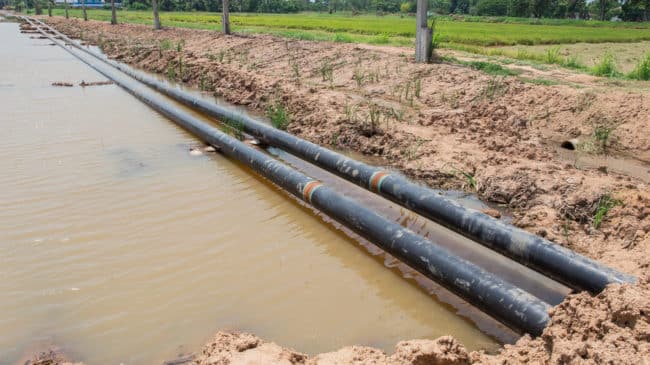Florida’s economy depends on its environmental resources, but a shocking number of sewage spills over the last decade are contributing to toxic algae blooms across the state.
A recent analysis by Gatehouse Media found that nearly 23,000 spills released 1.6 billion gallons of wastewater into the environment between 2009 and 2019—over 370 million gallons of which were completely untreated. Approximately 980 million gallons of this wastewater, including 220 million gallons of raw sewage, flowed into Florida’s waterways. Reducing sewage spills will require stronger incentives for municipal governments to upgrade sewer systems and public-private partnerships could be used to offset some of the financial burdens.
Blue-green algae blooms have plagued Florida in recent years. The toxic algae kill wildlife and can have serious health consequences for humans including irritation of the gastrointestinal tract, liver, nervous system, and skin. Prolonged exposure may even be linked to neurological disorders like amyotrophic lateral sclerosis (ALS) and Alzheimer’s disease.
The algae feed on nutrients such as the nitrogen and phosphorus found in wastewater spills and released by failing septic systems.
If these blooms continue to make negative headlines for the state, it could do serious damage to the Sunshine State’s economy, which relies heavily on tourism and inter-state migration. Florida’s reputation as the sportfishing capital of the world draws millions of anglers each year. In the year 2011 alone, over 1.9 million residents and 1.2 million visitors fished in Florida waters, supporting local marinas, boat charters, and bait shops in communities all around the state. The blooms also threaten property values and quality of life for residents living along the state’s lakes, rivers, and coastal estuaries.
Tackling Florida’s algae crisis will require major upgrades to municipal sewer systems to reduce spills. In fact, the state’s recently-appointed Blue-Green Algae Task Force pointed to failing sewer systems in their first-round recommendations released in October 2019. The task force also concluded that many of the state’s 2.6 million septic systems will need to be converted sewer, further highlighting the need for greater capacity. Unfortunately, despite clear environmental and economic harms, municipal governments often lack sufficient resources and incentives to invest in sewage infrastructure improvements.
Tougher penalties for spills could create stronger incentives, while public-private partnerships (PPPs) have the potential to alleviate some of the financial burdens local governments would face. The Florida legislature is currently considering legislation that would increase fines for sewage spills to $3,000 every day the spill continues. The frequency of spills over recent years suggests that the existing fines of $2,000 provide insufficient incentives to invest in infrastructure improvements.
The nature of individual public-private partnerships would vary depending on the context and needs of different municipalities. Broadly, PPPs could be involved in several aspects of infrastructure delivery including project design, construction, financing, operation, and maintenance. PPPs are most commonly used to outsource operation and maintenance (O&M). Under O&M contracts, municipalities maintain ownership of a facility, but a private firm operates, manages, and maintains it. In some cases, systems are sold or leased to private firms. If executed properly, PPPs could reduce costs and ensure that future upgrades are made in a timely manner.
Sewage spills and related algal blooms threaten Florida’s water and way of life, but municipalities lack sufficient incentives and resources to resolve the problem on their own. Tougher penalties combined with private investment would address these shortcomings to provide a workable solution.

